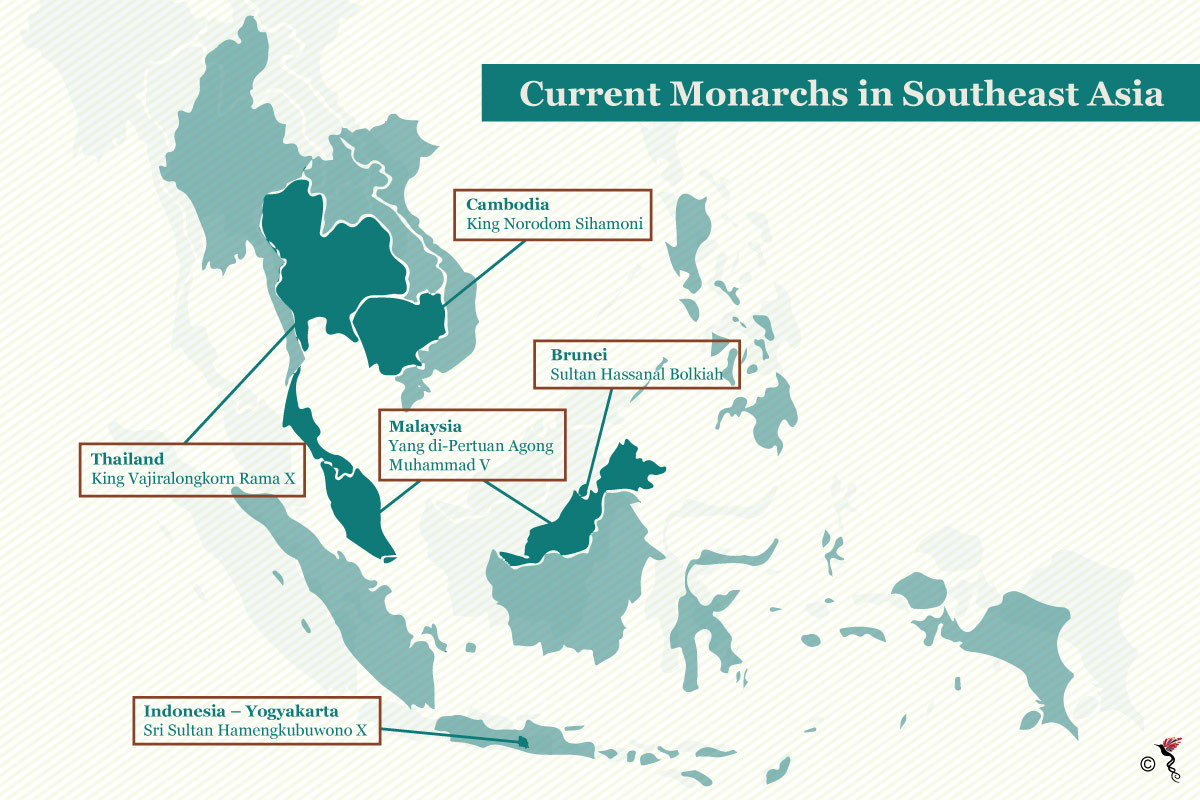"Based on the history in Malay countries, so long as the Sultan is in control, the country is stable," Khoo Kay Kim, Emeritus History Professor at University Malaya in Malaysia, told The ASEAN Post in a phone interview.
About a week ago, the current monarch of Brunei – Sultan Hassanal Bolkiah – celebrated his 50-year-rule of the oil-rich nation in style. Hassanal was riding on an ornately decorated golden royal chariot pulled by 50 royal guards through the capital city – Bandar Seri Begawan. Tens of thousands of Bruneians endured the scorching sun to catch a glimpse of the sultan and as a form of respect towards their monarch.
"The King's duty is to be fair to the people, and it is the duty of the people to be loyal to the King. The King is responsible to know the ups and downs of his people while the people must be sympathetic to the King," Hassanal said. "This is the principle of the life here which has been in existence for 600 years."
Khoo added that complete freedom may not be the best gift for a human being. "Human beings cannot be given complete freedom, so when there is a single authority like the Sultan, everything is under control," he explained. "To exercise freedom is to be conscious of responsibility."
"The whole trouble with democracy is that it leads to negative results," Khoo opined. "This is why when the British came and disrupted the system, everything fell out of place. When people think of their own freedom, they never think of their responsibility. Society cannot function that way," he concluded.
Aside from the Bruneians, Hassanal is also widely respected by other head of states and prominent figures from around the world. A day after the precession, Hassanal invited and hosted these prominent guests at a special banquet held in the country. Hassanal is currently the second-longest reigning monarch alive, after Queen Elizabeth II who has ruled the United Kingdom for 66 years to date.

Current monarchs in Southeast Asia.
Thailand's late king Bhumibol Adulyadej was also loved by the Thai population even after his death. Leading up to his four-day cremation event that will be held in Bangkok – the nation's capital – the once vibrant city has turned monochrome as a form of respect to its former ruler.
AFP reported that approximately half a million people are expected to arrive in Bangkok for the cremation ceremony of the late king which will be between October 25-29. The cremation ceremony is expected to cost 91 million dollars and will be infused with Buddhist ceremonies, cultural performances and arcane palace rituals. Also, some 70,000 security personnel will be deployed to keep the peace during the ceremony. He will be succeeded by his son, Vajiralongkorn Rama X, after the cremation ceremony when the year-long mourning comes to an end.
The other monarchs in Southeast Asia include Cambodia's King Norodom Sihamoni, Malaysia's Yang di-Pertuan Agong Muhammad V and Indonesia's Sri Sultan Hamengkubuwono X (who governs the special region of Yogyakarta, near Central Java).
Swaroopini Nair contributed to this article.
